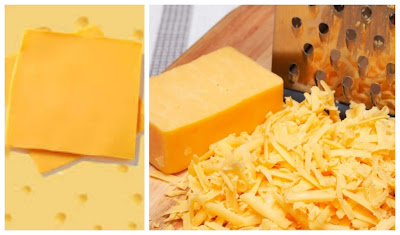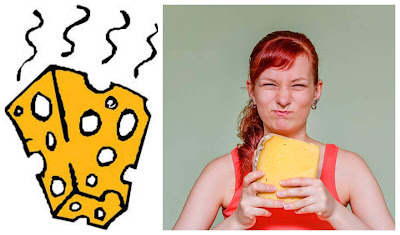Here's What No One Tells You About How Cheese is Made?
Cheese may be a soured food derived from the milk of varied mammals. Since humans began to domesticate milk-producing animals around 1000 B.C., they need illustrious concerning the propensity of milk to separate into curds and whey.
As milk sours, it breaks down into curds, lumps of protein, and whey, a watery, gray fluid that contains milk sugar, minerals, vitamins, and traces of fat. It's the curds that are accustomed, create cheese, and much each culture on Earth has developed its own ways, the sole major exceptions being China and therefore the ancient Americas.
The first cases were "fresh," that is, not soured. They consisted alone of preserved white curds drained of whey, like today's cheese. Consequent step was to develop ways that of fast the natural separation method.
This was achieved by adding an organic compound to the milk. An organic compound is Associate in Nursing protein from the abdomens of young ruminants—a ruminant is Associate in Nursing animal that chews its food terribly completely and possesses a posh Systema alimentarium with 3 or four stomach chambers.
Organic compound remains the foremost common approach of "starting" cheese, tho' different beginning agents like carboxylic acid and varied plant extracts are used.
Nowadays, cheese makers have compassed from bacterium and yeast that are genetically “taught” to form the protein.
This was achieved by adding an organic compound to the milk. An organic compound is Associate in Nursing protein from the abdomens of young ruminants—a ruminant is Associate in Nursing animal that chews its food terribly completely and possesses a posh Systema alimentarium with 3 or four stomach chambers.
Organic compound remains the foremost common approach of "starting" cheese, tho' different beginning agents like carboxylic acid and varied plant extracts are used.
Nowadays, cheese makers have compassed from bacterium and yeast that are genetically “taught” to form the protein.
Cheese cheese features a stringy quality as a result of it’s kneaded like dough before being fashioned into its final form.
Swiss cheese is formed with bacterium that turn out CO2 (CO2) once they digest milk sugar. The bubbles of carbonic acid gas square measure what produce the holes within the cheese.
Swiss cheese is formed with bacterium that turn out CO2 (CO2) once they digest milk sugar. The bubbles of carbonic acid gas square measure what produce the holes within the cheese.
It’s not a coincidence that some cheese smells funky. Limburger cheese, one in every of the stinkiest forms of all time, gets its smell from an equivalent bacterium that cause pungent feet — Brevibacterium linens. Some folks don’t mind the smell. However, if mommy or pop brings home a block of Limburger, be ready to carry your nose.





Post a Comment
Please do not enter any SPAM link in comment box.